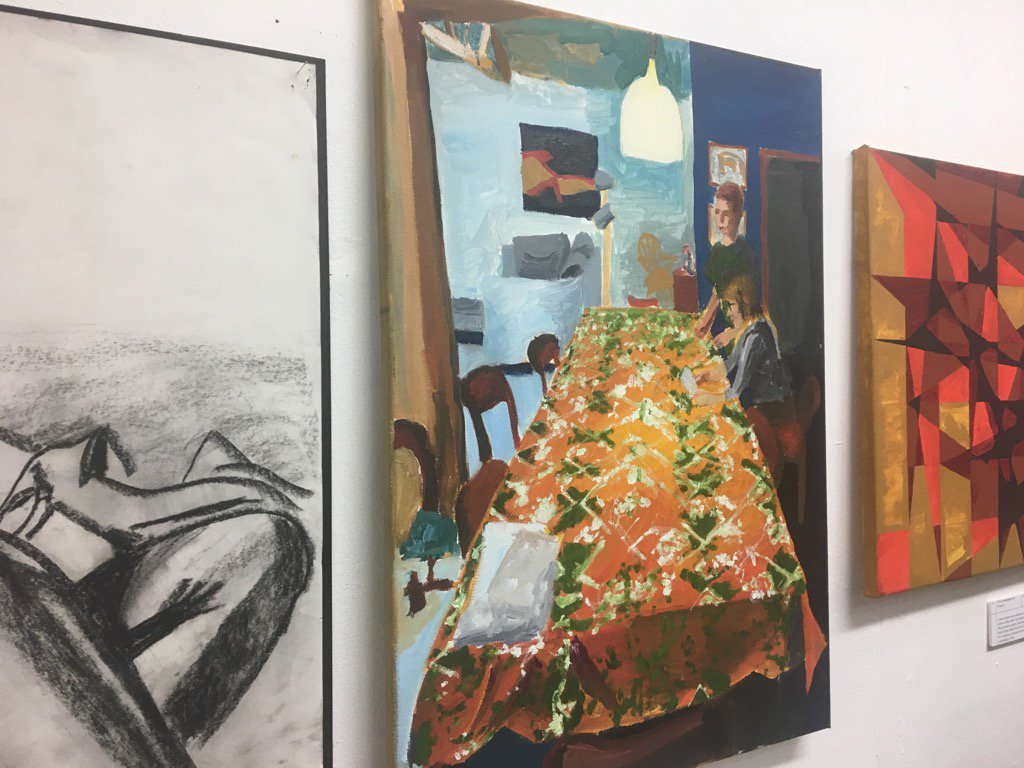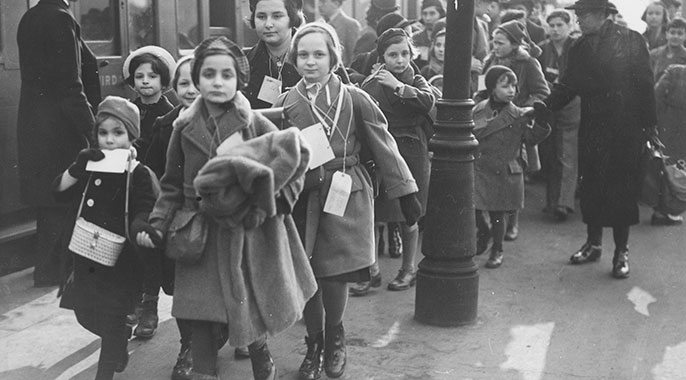
Cambridge and Kindertransport
Published on 08/02/17
Mike Levy, currently undertaking a PhD at Anglia Ruskin University, gave a fascinating talk to members of History society yesterday, on Cambridge’s role in the Kindertransport project of the 1930s.
 Following intensified attacks on the Jewish population by the Nazis, Britain organised local groups to receive and provide care for child refugees. 10,000 children from Germany, Austria, Poland and Czechoslovakia, were brought to the UK in the late 1930s, including 2000 to Cambridgeshire. The children were between age 5 and 17 and came on the provision that they were unaccompanied, that their stay would be temporary and not at a cost to the state.
Following intensified attacks on the Jewish population by the Nazis, Britain organised local groups to receive and provide care for child refugees. 10,000 children from Germany, Austria, Poland and Czechoslovakia, were brought to the UK in the late 1930s, including 2000 to Cambridgeshire. The children were between age 5 and 17 and came on the provision that they were unaccompanied, that their stay would be temporary and not at a cost to the state.
Many of us were previously unaware that our school (then Perse Girls), took an active responsibility in taking care of some of these children. Miss Cattley, our headteacher in this period, ensured free or subsidised places for some refugee girls. One of these girls was Doris Rath, who came to Cambridge in 1937 with her younger sister. Through such individual cases, the generosity and kindness of these families in fostering the refugees was clear.
Hosting the children was entirely voluntary, there was no subsidy given from the government to provide for the child’s needs. Mr Levy told us about Sibyl Hutton who lived on Chaucer Road; she was a remarkable woman who not only fostered many children herself, but was the secretary of the Cambridge Children’s Refugee Committee (CCRC).
 The CCRC was a small voluntary organisation that welcomed the refugees and found them homes in Cambridge and the surrounding area.
The CCRC was a small voluntary organisation that welcomed the refugees and found them homes in Cambridge and the surrounding area.
Another unsung hero of this time was Greta Burkhill, an alumna of Newnham College who led the CCRC and is credited with much of its success. She gave the gave Mr Levy the title for his work, telling him they felt at the time only that “we must save the children”.
Mr Levy’s talk fully exposed the admirable generosity of these women and the foster families in our area. However, the darker side to this story was not ignored. The children had arrived following the trauma of leaving their homes and their parents, as well as the memory of the atrocities committed against the Jewish population in late 1930s Europe.
We can only imagine the fear these children felt upon their arrival but Mr Levy’s stories gave us the comfort of knowing many received a welcoming and safe foster placement in Cambridge and the rest of the UK.